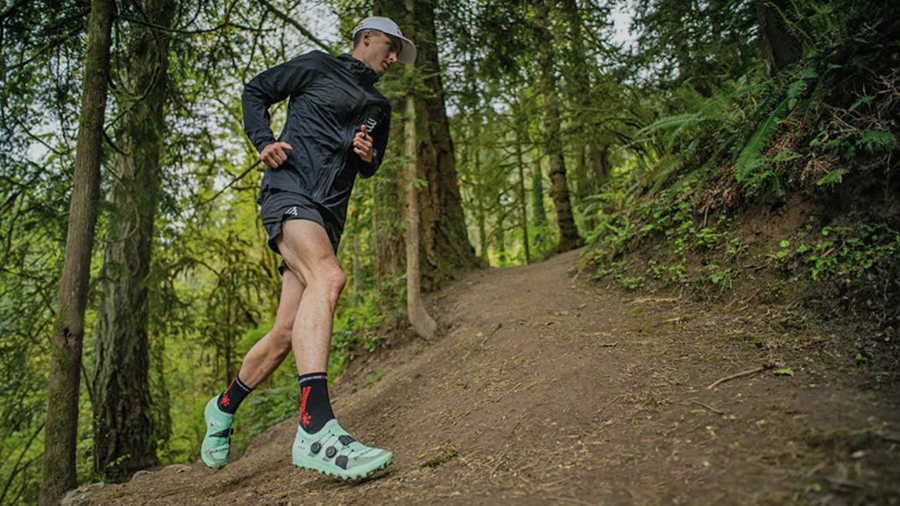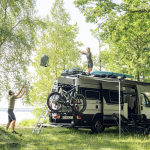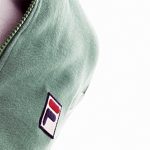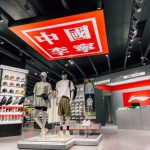Brand aggregator Compass Diversified (CODI) saw third-quarter sales decline 25 percent at BOA and 16 percent at Primaloft as both businesses continued to be impacted by elevated inventories in the marketplace. Among CODI’s other active lifestyle brands, revenues grew 13 percent at Marucci Sports and 7 percent at 5.11 while sliding 28 percent at Velocity Outdoor.
CODI also announced that it reached an agreement to sell Marucci Sports to Fox Factory Holding Corp for $572 million and took a significant impairment charge for the underperformance of its Velocity Outdoor airguns and archery business.
BOA’s Sales Plunge 25 Percent, Bookings Turn Positive
BOA’s sales in the third quarter slumped 25.5 percent to $37.3 million from $50.0 million a year ago. CODI in its 10Q filing said the decrease was due to higher than anticipated end-market inventory levels due to supply chain normalization and corresponding inventory ordering surge experienced in many of its industries in 2022. A normalization of inventory levels is expected by the middle of next year.
BOA’s operating income fell 48.5 percent to $6.7 million from $13.0 million for the same period in 2022.
BOA’s gross margins eroded 80 basis points to 58.9 percent, driven by fixed manufacturing overhead expenses and an increase in depreciation related to tooling. SG&A expenses decreased 12.3 percent to $11.1 million due to decreased employee costs related to BOA’s bonus plan and a decrease in marketing expenses but increased as a percent of sales to 29.8 percent compared to 25.4 percent a year ago due to sales deleverage.
In the nine months, BOA’s sales were down 31.8 percent to $113.4 million. Operating earnings in the year-to-date period were down 54.8 percent to $22.7 million from $50.2 million a year ago.
On an analyst call, Pat Maciariello, COO of Compass Group Management, said that while both BOA and Primaloft have been slowed in recent quarters by the efforts to rebalance elevated inventory levels in the marketplace, the “headwinds have eased in certain areas” and BOA’s bookings have turned positive.
Maciariello said, “We are hopeful that Q3 represented a turning point for BOA. While the company continued to show a decline in adjusted EBITDA through the year-to-date period, bookings were positive in Q3 versus the prior year, and our belief is that the worst of the inventory de-stocking headwinds are behind us for this business. As we approach ski season, the buzz surrounding the launch of Alpine Boots incorporating our technology continues to gain momentum, and we anticipate a strong launch.”
PrimaLoft’s Sales Drop 16 Percent
PrimaLoft’s sales declined 16.2 percent in the quarter, to $10.9 million from $13.0 million a year ago. Results were represented on a pro-forma basis and assume CODI owned Primaloft since the start of 2022. CODI acquired Primaloft in July 2022.
In the following results of operations, we provide comparative pro forma results of operations for PrimaLoft for the three and nine months ended September 30, 2022, as if we had acquired the business on January 1, 2022. The results of operations that follow include relevant pro-forma adjustments for pre-acquisition periods and explanations where applicable. The operating results for PrimaLoft have been included in the consolidated results of operation from the date of acquisition in July 2022.
The decrease was attributed to lower ordering from existing customers as a result of higher inventory levels at retail customers which more than offset new customer wins. Retail ordering is expected to begin to normalize by the end of this year to support improved results in 2024.
PrimaLoft’s operating loss reduced its operating loss to $2.8 million from $7.9 million for the same period in 2022, largely due to lowered integration fees.
Gross margins improved to 59.8 percent from 55.2 percent a year ago due to price increases implemented in the fourth quarter of 2022. SG&A expenses were slashed to $3.8 million, or 35.2 percent of sales, from $10.8 million, or 82.7 percent. The year-ago period included $1.2 million in integration services fees and $5.8 million in transaction costs associated with the acquisition.
In the nine months, PrimaLoft’s sales declined 12.6 percent to $65.9 million. Operating earnings more than doubled to $5.1 million from $2.3 million.
Maciariello on the call said that while BOA is showing signs of improvement, Primaloft’s vendors continued to show soft demand “as apparel makers remain cautious about consumer demand in 2024.”
He said, “As we enter booking season for fall winter of 2024, brands remain cautious, though the company is adding new programs and customers, and we have experienced very little customer attrition. We anticipate a muted Q4, but remain optimistic about the company’s prospects in 2024 and beyond. Under CODI ownership, Primaloft remains well-positioned, and we believe it will prosper following industry-wide inventory de-stocking trends in the apparel business.”
Marucci Sports Sales Climb 13 Percent
Marucci Sports’ sales advanced 13.3 percent in the third quarter to $48.5 million. The increase was due to increased customer demand, particularly at big-box retailers and through direct-to-consumer channels, and market share growth in Marucci’s key product lines, including aluminum and wood bats, and batting gloves. The year-over-year gains also reflect Marucci’s add-on acquisition in early April of Baum Bat, a manufacturer of composite bats, which allowed further penetration of the wood bat market during the quarter.
Marucci’s operating earnings rose 44.2 percent to $11.1 million. Gross margins improved to 59.6 percent from 58.2 percent a year ago, primarily due to an increase in direct-to-consumer sales during the current quarter, which carries higher margins. SG&A expenses increased 6.4 percent to $15.0 million due partly to the increase in net sales, with increases in credit card expenses, royalties, commissions, business development fees, and other variable expenses. Marucci also incurred additional promotional and marketing expenses in the current quarter due to seasonal programs at several retail customers and increased operational expenses to support its growth. As a percent of sales, SG&A expenses were reduced to 31.0 percent from 33.0 percent a year ago.
In the nine months, Marucci’s sales grew 17.6 percent to $144.1 million. Operating profits doubled to $28.4 million from $14.1 million a year ago.
Maciariello on the call, “Marucci once again had an exceptional quarter.”
Elias Sabo, CODI’s CEO, also offered some comments on Marucci’s sale on the analyst call. CODI purchased the maker of baseball bats and gloves led by Kurt Ainsworth in 2020 for $200 million. Later, Baum Bat and Lizard Skins, a manufacturer of grip tape used in baseball, cycling, hockey, and lacrosse, were acquired and added to the Marucci platform for $70 million.
CODI expects to realize a pre-tax gain between $225 million to $245 million, and we expect the net proceeds will be used to pay down outstanding debt and for general corporate purposes.
“We are extremely proud of the growth Marucci has experienced under our ownership,” said Sabo. “And we feel fortunate to have been able to partner with their outstanding team. We acquired the business in April 2020, based on our confidence in both Marucci’s brand and management. Keep in mind, this was at a time when few transactions were being completed due to the pandemic, but our flexible capital structure and our commitment to seizing strong opportunities, even in times of economic uncertainty, allowed us to execute at a time when others weren’t. Since then, the Marucci team has acted decisively, strengthening their brand and growing their core business. They have gained share in new markets like fielding gloves and softball.”
He also noted that CODI expanded Marucci’s product portfolio with the additions of Lizard Skins and Baum Bat. Sabo concluded, “We are honored to have partnered in this success. Thank you to Kurt and the entire Marucci team for their contributions over the last several years. We wish them nothing but continued success.”
5.11’s Revenues Gain 7 Percent
5.11’s sales improved 6.9 percent, or $8.7 million, in the third quarter to $135.2 million. The increase for the maker of tactical apparel and gear was driven by a $4.1 million increase in direct-to-consumer sales largely due to strong demand in digital sales, in addition to sales from 23 new retail store openings since September 2022 (bringing the total store count to 124 as of September 30, 2023). Additionally, domestic wholesale sales increased $1.8 million and international sales increased $2.3 million due to strong demand and inventory availability and fulfillment of a $1.6 million direct-to-agency contract.
Operating income rose 10.7 percent to $13.4 million. Gross margins were down slightly to 52.0 percent of sales from 53.1 percent, unfavorably impacted by an increase in inventory reserves for aged raw materials, as well as increased promotional activity to sell through seasonal product, which were offset favorably by customer mix and product mix. SG&A expense were reduced to 40.3 percent of sales from 41.6 percent with costs increasing due to additional retail stores and increased headcount.
In the nine months, 5.11’s sales increased 10.0 percent to $385.7 million while operating income improved slightly to $31.7 million from $30.3 million a year ago.
“5.11 had another solid third quarter,” Maciariello said on the call. He added, “Though the company is not immune to the headwinds facing consumers today, 5.11 once again benefited from its diverse channel mix as its professional sales increased both domestically and internationally during the quarter. We continue to see this momentum in the fourth quarter.”
Velocity Outdoor’s Sales Tumble 28 Percent
Velocity Outdoor’s sales declined 27.8 percent to $54.5 million. The segment includes the Crosman, Benjamin, Ravin, LaserMax, CenterPoint, and King’s Camo brands in the airguns and archery space. The decrease was blamed on declining consumer demand in the overall outdoor sporting goods category.
Velocity performed an interim impairment test of their goodwill during the third quarter as a result of operating results that were below forecast amounts that were used in quantitative impairment testing performed in March 2023. The impairment test resulted in Velocity recording an impairment expense of $32.6 million in the third quarter.
As a result, Velocity Outdoor’s operating loss for the third quarter was $28.6 million compared to operating income of $10.2 million for the same period in 2022.
Gross margins eroded slightly to 29.1 percent from 29.6 percent a year ago due to product mix along with reduced absorption of operating costs. SG&A expenses were down slightly to $9.3 million from $9.6 million a year ago and increased as a percent of sales to 17.1 percent from 12.7 percent a year ago due to the reduced revenues and marketing investments associated with the King’s acquisition.
In the nine months, sales fell 30.1 percent to $126.3 million. The operating loss was 33.5 million after the impairment charge versus operating income of $18.7 million for the same period in 2022.
Maciariello said on the call, “Velocity continued to struggle in the third quarter, though performance did improve significantly on a sequential basis. We continue to focus both on cost controls and demand stimulation and believe performance will improve in 2024.”
CODI’s Companywide Profits Top Expectations
Companywide, CODI’s net sales in the quarter were $569.6 million, down 1 percent compared to $575.8 million in the third quarter of 2022. Strong performance at Lugano and Marucci roughly offset lower sales at BOA due to inventory destocking in the footwear industry and lower sales at Velocity Outdoor in the third quarter of 2023.
On a pro-forma basis adjusting for the PrimaLoft acquisition, Branded Consumer segment sales increased 2 percent in the third quarter to $388.3 million compared to the third quarter of 2022. The segment includes CODI’s active lifestyle brands, BOA, 5.11, Marucci, PrimaLoft, and Velocity Outdoor, as well as Ergobaby and Lugano.
Sabo said the Branded Consumer businesses exceeded expectations by managing a sales increase.
“As we have stated many times before, inventory-related de-stocking headwinds have significantly lowered our consumer growth rate in 2023,” said Sabo. “Even though these headwinds still existed in the third quarter, we were able to produce solid growth. While we expect inventory de-stocking to continue in the fourth quarter, comparisons to the prior year are expected to ease, and we expect growth rates will further accelerate. Given the broader difficult macroeconomic backdrop, we are certainly pleased with our subsidiaries’ resilience and performance to date, and we remain confident at an even stronger 2024.”
The Niche Industrial segment’s sales decreased 8 percent in the third quarter to $181.2 million. The segment includes Altor Solutions, Arnold Magnetics, and Sterno.
CODI’s net loss in the quarter was $3.8 million compared to net income of $2.6 million in the third quarter of 2022, reflecting the impairment expense associated with Velocity Outdoor and higher interest expense. Adjusted EBITDA was $103.9 million, up 13 percent compared to $91.9 million in the third quarter of 2022. The increase was primarily due to strong results at Lugano, Marucci, Sterno, and Altor.
Overall results exceeded expectations, prompting CODI to raise its full-year outlook. For 2023, CODI now expects consolidated subsidiary adjusted EBITDA, including Marucci, of between $450 million and $465 million, up from $430 million and $460 million previously. For the full year 2023, CODI now expects to earn between $130 million and $140 million in adjusted earnings compared to a range of $110 million and $135 million under its previous guidance.
Photo courtesy BOA
















